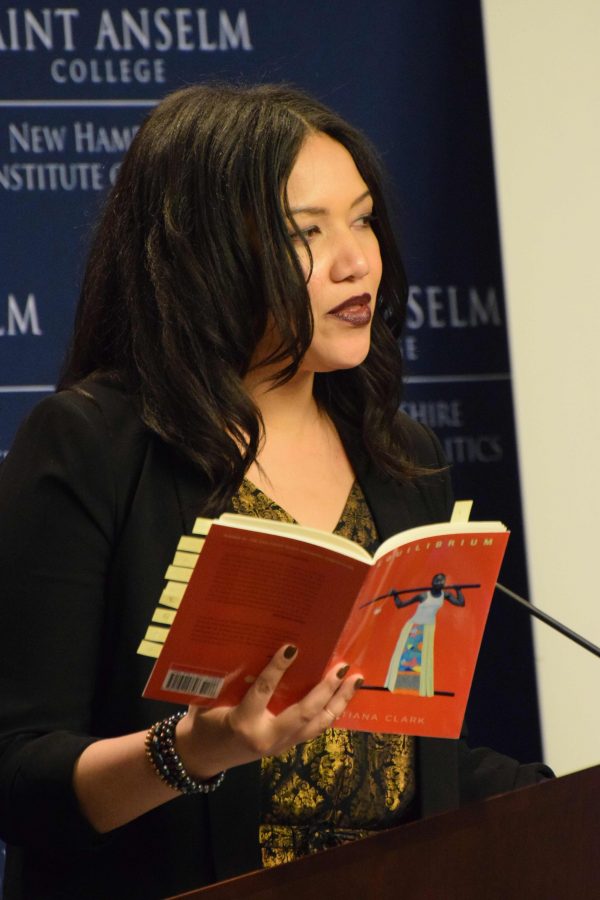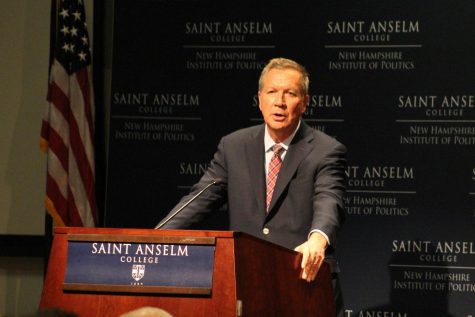Poet Tiana Clark speaks about race, gender, and identity at MLK event
February 8, 2017
When Tiana Clark ascended to the podium at the New Hampshire Institute of Politics at 7 p.m. on Jan. 3, she began by reading a poem called “The New Colossus” by Emma Lazarus. Before she began to read her own work, she quoted poet Jordan June, saying, “Poetry is a political act because it involves telling the truth.”
The very first poem she read aloud was “Equilibrium” about coming to terms with one’s identity. Afterwards, she read “The Frequency of Goodnight” about her single mother, struggling with multiple jobs to pay the bills. Clark went on to read “Broken Ghazal” about police brutality, “Soil Horizon” about history and heritage, “How to Find the Center of a Circle” about the fragmented nature of trauma, and many others.
Once she finished sharing her work, she left the crowd with a promise: “to be continued.”
Tiana Clark is an up-and-coming and award-winning poet. These awards include the 2016 Academy of American Poets Prize, the 2016 Frost Place Chapbook Award, and the 2015 Rattle Poetry prize. In addition to these trophies, she has also been selected for the Best New Poets of 2015 volume by Tracy K. Smith, and her work has been featured in multiple journals, magazines, and reviews.
In the spirit of MLK month, Tiana Clark brought her own twist to the topic of race, diversity, and heritage. Through her poetry, she was able to voice the struggles still faced by African Americans today, long after Martin Luther King Jr. Much of her work is about “celebrating scars,” Clark said. Though she has gone through hardships, Clark uses her writing and experiences in being biracial to make something good come out of dark events in her own life and in the lives of others.
Referring to Clark’s poems about police brutality, Hayley Morgan, a freshman at Saint Anselm, said, “I love that she acknowledged the shared pain of a community caused by horrendous acts, but that she was able to make art out of it.”
After Clark’s poetry reading and discussion, there was a lot of positive feedback from the audience. Erica Davis, another freshman student, admired the “strong, powerful language” throughout Clark’s poetry. Yet another member of the class of 2020, Catie Griffin, said, “Some of what she said just knocked the wind out of me.”
By using her talent for poetry, Tiana Clark is able to bring awareness to obstacles African-Americans – and others – still encounter in the 21st century. Her favorite themes, family, religion, history, and trauma, are said to fuel her writing. “Poems are resistance for me,” Clark said, “I think of poetry as a means of survival.”











